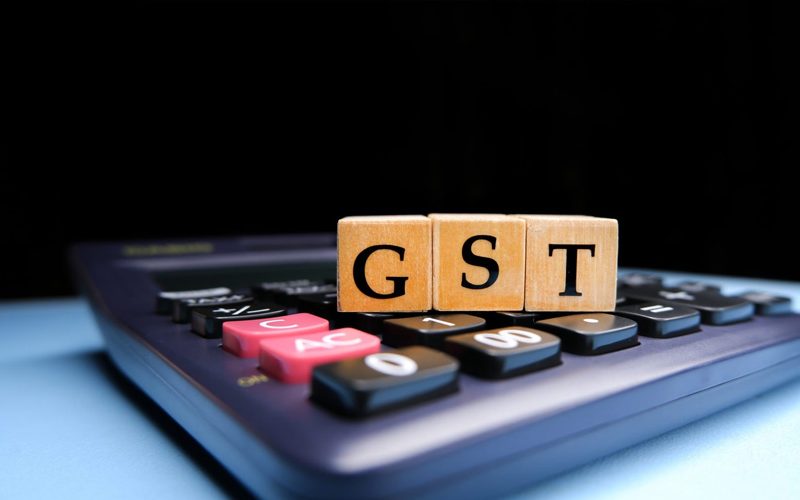India Tightens Grip on Cryptocurrency Exchanges to Ensure Tax Compliance and Accountability
The Indian government has uncovered Goods and Services Tax (GST) evasion worth ₹824.14 crore across 17 cryptocurrency exchanges, marking a significant escalation in its efforts to regulate the rapidly expanding crypto industry. This revelation was made by the Minister of State for Finance, Pankaj Chaudhary, and underscores the authorities’ focus on ensuring compliance in the cryptocurrency ecosystem.
Major Exchanges Under Investigation
Among the 17 exchanges under scrutiny, several prominent platforms have been flagged for significant GST evasion. The largest reported case involves Nest Services Ltd, part of the Binance Group, with alleged evasion totaling ₹722.43 crore. Other notable cases include:
- Zanmai Labs Pvt Ltd (WazirX): ₹40.51 crore
- CoinDCX: ₹16.84 crore
- CoinSwitch Kuber: ₹14.13 crore
These investigations highlight the scale of non-compliance in the sector, with some of the most widely used platforms implicated in tax evasion.
Recovery Efforts and Ongoing Probes
Authorities have so far recovered ₹122.29 crore in taxes, penalties, and interest from the implicated exchanges. This recovery is part of a broader effort by the Central GST authorities, who continue to probe the cases to ensure full compliance and recover additional dues.
Beyond exchanges, GST evasion has also been detected among individual cryptocurrency investors. Four individuals have been found evading ₹1.76 crore, with authorities recovering ₹2.40 crore, including penalties and interest.
Cryptocurrency Regulations in India
India has been working to bring the cryptocurrency industry under stringent regulatory frameworks. Cryptocurrencies are classified as Virtual Digital Assets (VDAs) under Section 2(47A) of the Income Tax Act. The taxation regime for VDAs includes:
- Flat 30% Tax on Profits: Profits from crypto transactions are subject to a 30% tax, with no deductions permitted except for the cost of acquisition.
- 1% TDS on Transactions: A 1% Tax Deducted at Source (TDS) applies to transactions exceeding ₹50,000 annually, aimed at enhancing traceability and preventing tax evasion.
These measures reflect the government’s intent to monitor and regulate the sector while ensuring revenue generation.
Impact on the Cryptocurrency Sector
The intensified scrutiny and stringent tax measures have significantly impacted the cryptocurrency industry in India. The detection of such large-scale GST evasion has raised questions about the operational transparency of exchanges and their adherence to regulatory norms.
Exchanges now face increased pressure to strengthen their compliance frameworks, enhance transaction reporting mechanisms, and ensure timely tax payments. Failure to do so could result in penalties, reputational damage, and loss of customer trust.
For individual investors, the tax regulations highlight the importance of maintaining accurate records of transactions and profits to avoid penalties. The imposition of 1% TDS has also affected trading volumes, as frequent traders face liquidity challenges due to the tax deduction.
Government’s Larger Strategy
The discovery of GST evasion in the cryptocurrency sector aligns with the government’s broader strategy to regulate digital assets. By ensuring strict compliance with tax regulations, authorities aim to:
- Prevent revenue leakage and enhance government income.
- Establish transparency in cryptocurrency transactions.
- Deter illegal activities such as money laundering and fraud.
The government has also been proactive in fostering international collaboration to address cross-border challenges in cryptocurrency regulation. By participating in global discussions on digital asset frameworks, India seeks to align its policies with international best practices.
Challenges in Regulating Cryptocurrencies
Despite these measures, regulating the cryptocurrency sector poses challenges. The decentralized and anonymous nature of many digital assets complicates monitoring and enforcement efforts. Exchanges and traders often operate across borders, making it difficult to track transactions and enforce compliance.
Moreover, the rapidly evolving nature of blockchain technology and digital currencies necessitates continuous updates to regulatory frameworks. Governments must strike a balance between encouraging innovation and ensuring accountability to prevent the misuse of these technologies.
Path Forward
The government’s ongoing efforts to address GST evasion in cryptocurrency exchanges signify a decisive step toward building a transparent and accountable ecosystem for digital assets. For the industry to thrive, stakeholders must prioritize compliance and transparency.
Educational initiatives aimed at increasing awareness about tax obligations among investors and businesses will play a crucial role in promoting voluntary compliance. Simultaneously, robust technological solutions, such as blockchain analytics tools, can aid authorities in monitoring transactions and detecting evasion more effectively.
As cryptocurrencies gain prominence in the global financial landscape, India’s regulatory approach will serve as a benchmark for other countries. By addressing challenges and enforcing compliance, the government aims to create a sustainable and equitable framework for digital assets, ensuring the sector’s growth aligns with national economic interests.
The crackdown on GST evasion is not just about recovering lost revenue but also about setting a precedent for accountability and fairness in the digital economy. The measures implemented today will shape the future trajectory of the cryptocurrency industry in India.
